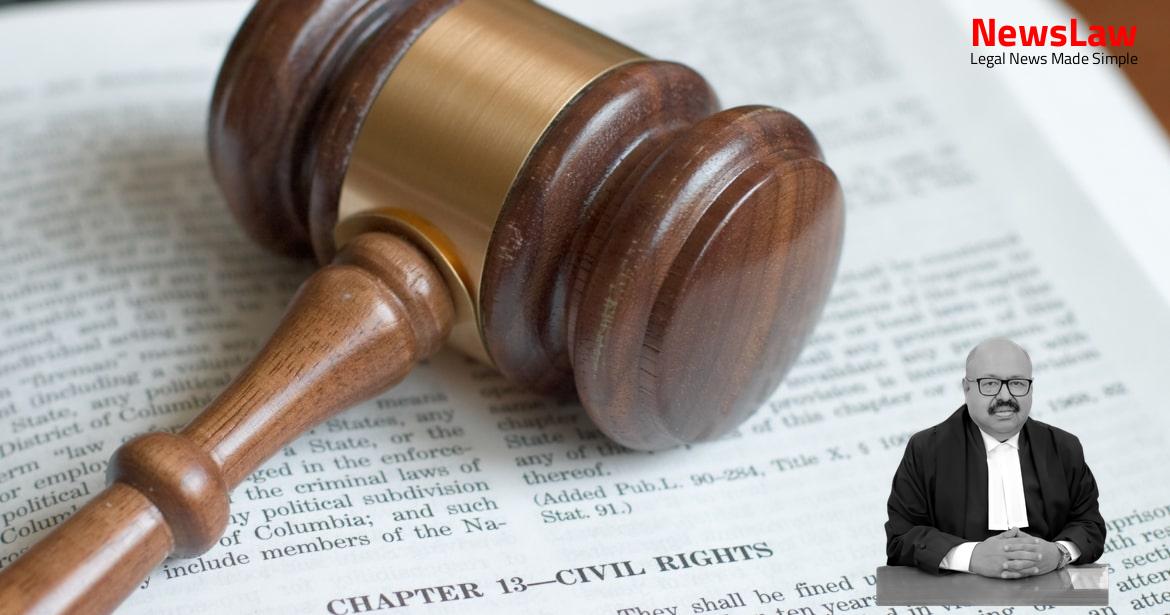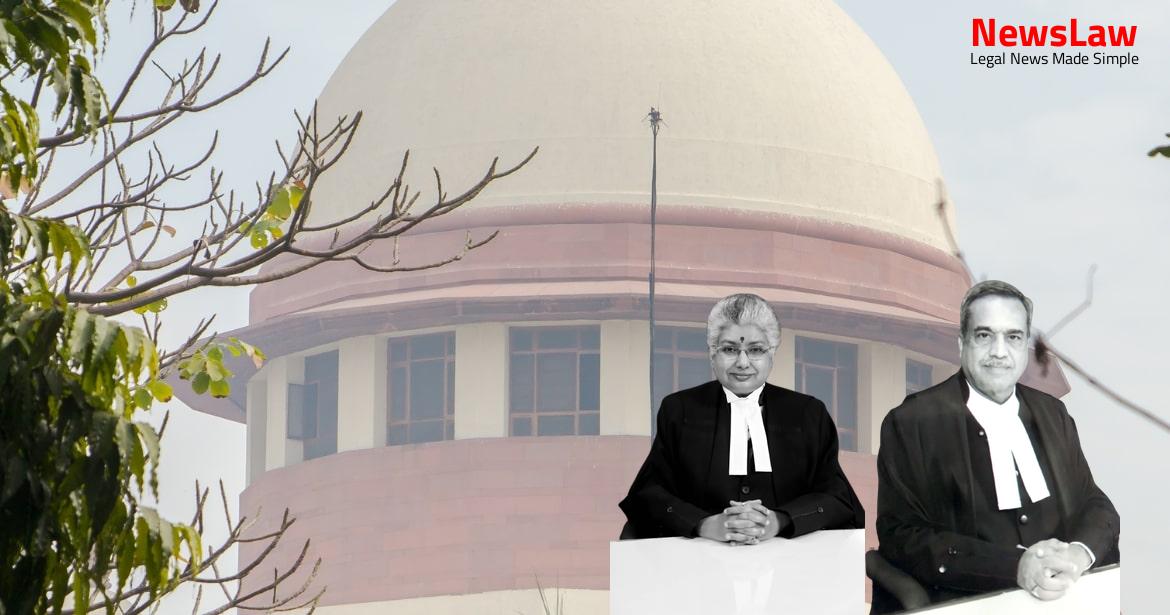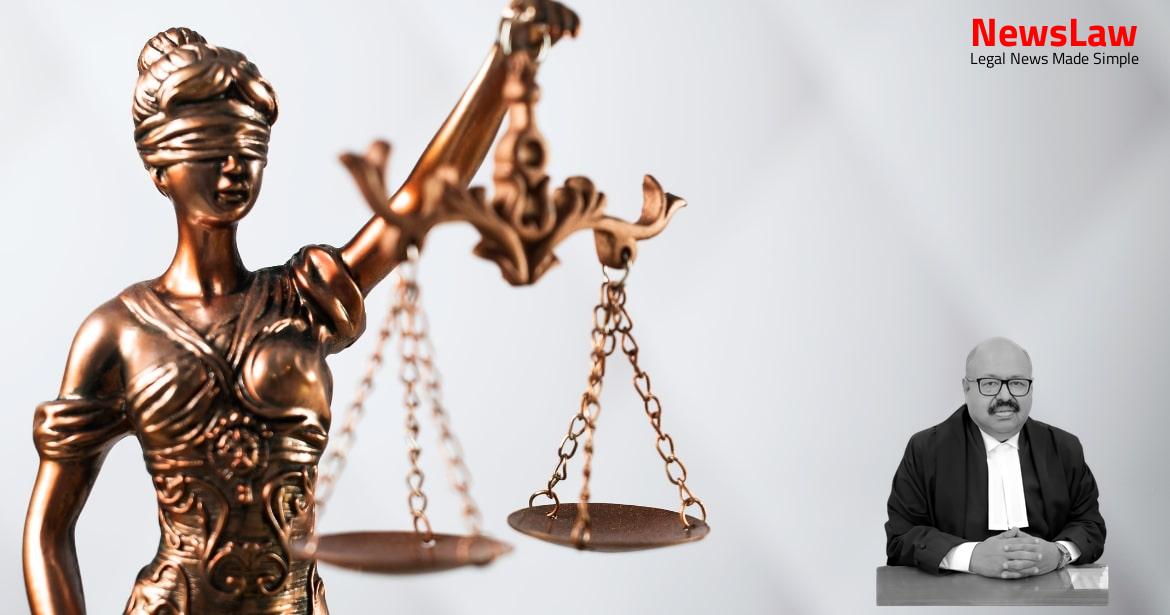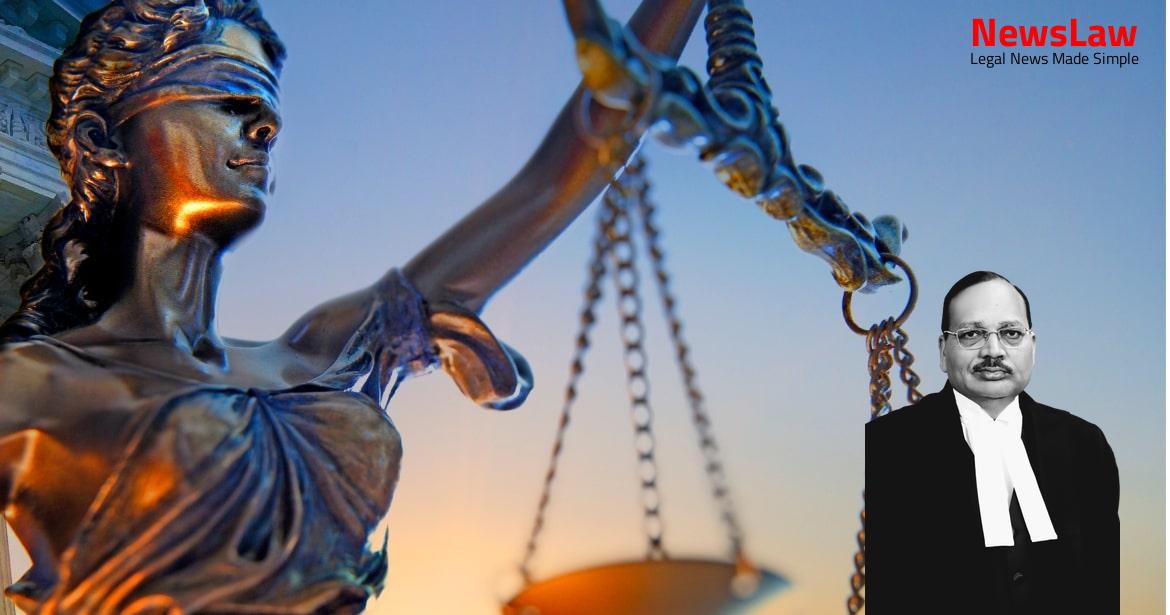In a significant decision by the Supreme Court of India, the case of Chirag Bhanu Singh and Arvind Malhotra regarding judicial elevation was thoroughly examined. The judgment highlights the importance of collective consideration by the High Court Collegium in matters of appointments. Stay updated on this crucial legal development. #SupremeCourt #JudicialReview #Consultation #HighCourtCollegium
Facts
- Writ petition filed by two senior District and Sessions Judges in Himachal Pradesh under Article 32 of the Constitution of India.
- Supreme Court Resolution dated 4 January, 2024 was called for during the hearing on 23 July, 2024.
- One of the Petitioners made a representation to the Chief Justice of India against non-consideration for elevation.
- The two petitioners are the senior most judicial officers in Himachal Pradesh.
- Registrar General’s report noted that the Resolution of the Supreme Court Collegium was never received by the Chief Justice of the High Court.
- Allegations of a contemptuous letter being sent in violation of the resolution dated 4 January, 2024 of the Supreme Court Collegium.
- The two petitioners, who are direct recruits and senior-most district judges in Himachal Pradesh, were deferred by the Supreme Court Collegium for consideration on 12.07.2023.
- On 6 March 2024, the Chief Justice of the High Court addressed a letter to the Supreme Court Collegium regarding the suitability of the petitioners. A previous letter seeking guidance was also sent on 11 December 2023.
- The petitioners, along with others recommended in December 2022, were appointed as Judges of the High Court on 28.07.2023.
- The Supreme Court resolved on 04.01.2024 to remit the proposal for the petitioners’ elevation back to the Chief Justice of the Himachal Pradesh High Court for fresh recommendation.
- The Minister for Law and Justice communicated on 16.01.2024 that fresh recommendations should be sent for the two officers, Chirag Bhanu Singh and Arvind Malhotra, against the unfilled vacancies from service quota in the Himachal Pradesh High Court. The petitioners’ names were recommended for elevation in December 2022.
Arguments
- Senior counsel argued that as the two seniormost judges, they have a constitutional right for reconsideration of their names.
- Highlighting the need for collective consideration by the High Court Collegium for elevation
- The argument that the present writ petition is maintainable as it is limited to ‘lack of effective consultation’
- Reference to past court decisions on issues of ‘eligibility’ and ‘effective consultation’ being within the realm of judicial review
- Submission that individual reconsideration by the Chief Justice of a High Court is not permissible
- Emphasis on the in-built check against arbitrariness or bias through collective consideration by the Collegium
Also Read: Avitel Post Studioz Ltd. v. HSBC: Enforcement of Foreign Arbitral Award
Analysis
- At this stage, the vital difference between judicial review and merit review is highlighted.
- Consultation is crucial in testing the fitness of a person to be appointed as a High Court Judge under Article 217(1).
- The content of consultation is beyond the scope of judicial review, but lack of effective consultation could be reviewed.
- Judicial review is available when the appointee lacks eligibility.
- Plurality of judges, consultation, and prevailing norms act as checks against arbitrariness in appointments.
- Judicial review is available in cases where views of necessary judicial authorities have not been considered.
- The distinction between ‘eligibility’ and ‘suitability’ is recognized, where ‘eligibility’ falls within the scope of judicial review while ‘suitability’ is non-justiciable.
- Want of consultation with named constitutional functionaries or lack of eligibility are justiciable grounds, but bias is excluded by the element of plurality in decision-making.
- Judicial review found that the procedure for reconsideration of two petitioners lacked collective consultation by members of the High Court Collegium.
- The limited scope of judicial review in such matters was clarified to ensure transparency and accountability.
- The re-consideration resolution was solely to determine whether effective consultation was carried out.
- The absence of collective consultation among the High Court’s three Constitutional functionaries was evident in the reconsideration process.
- The Supreme Court Collegium does not sit in appeal over the High Court Collegium’s recommendation.
- The Chief Justice of a High Court cannot independently reconsider recommendations; it must be done collectively by the High Court Collegium.
- The High Court Collegium was directed to reconsider the elevation of the two petitioners in accordance with specified decisions.
- Maintainability of the writ petition was upheld due to the lack of effective consultation.
- Collaborative deliberations ensure transparency in decision-making and maintain public trust in the judiciary.
Also Read: Insurance Claim Repudiation due to Fire Incident: Court’s Legal Analysis
Decision
- The judgment is vitiated both procedurally and substantively.
- The reasoning and conclusions in the decision are flawed.
- The process followed in reaching the decision is found to be faulty.
- Both the procedure and the outcome of the decision are questionable.
- Further analysis and review are required to rectify the errors.
Case Title: CHIRAG BHANU SINGH Vs. HIGH COURT OF HIMACHAL PRADESH (2024 INSC 660)
Case Number: W.P.(C) No.-000312 – 2024



